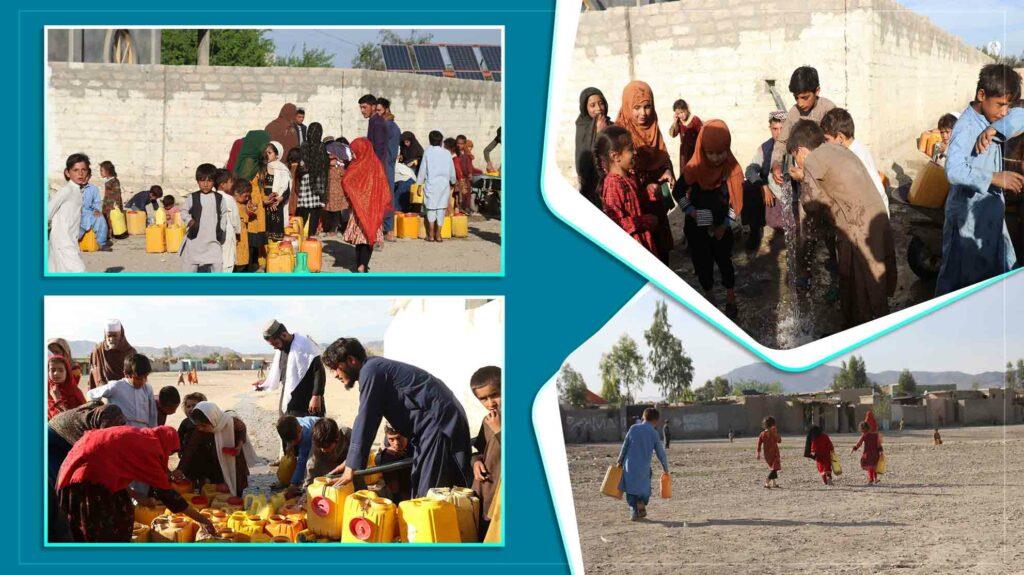
Kabul Camp Dwellers Struggle With Potable Water Shortage
JALALABAD (Pajhwok): Children and adults in the Kabul Camp area of Jalalabad city, the capital of Nangarhar province, fetch water home from a mosque well, but water is pumped from the well by solar power when the sky is clear.
The camp situated in the ninth district of Jalalabad city was built about three decades ago and its residents have been complaining about the lack of clean drinking water for years.
About 3,000 families live in this camp, but most of them lack access to clean drinking water.
With donations from residents, a well has been dug in the fifth block of the camp's mosque, from which about 300 families draw water using solar power, but this is only possible when the sky is clear and sunny.
Children and adults wait for hours until their turn to collect water they need for their homes; but sometimes some people return home with empty containers in despair.
Bakht Jamal Safi, a resident of Block 5, told Pajhwok Afghan News that there were ten blocks in the Kabul camp, and 300 to 500 families lived in each block, most of whom faced water shortage problems.
He said the groundwater level in the area was deeper than 100 meters so it was beyond the capacity of the poor people of this camp to dig wells.
“People living in the camp are destitute, no one has access to water. The mosque well was built by a charity foundation.”
Similarly, another local resident, QariRohullah, also said that they are facing great difficulties due to lack of drinking water. He asked relevant authorities and charities to help them in this regard.
He said:“The children of our block go to themosque to fetch water after walking 500 meters. So far, neither the previous regime, nor the current regime has taken any action to serve us in the water sector; but we appeal to the institutions and government officials to solve our this vital issue.”
An eight-year-old girl Laila, who came to the mosque well after walking about 300 meters, said every day when she fetches water home, she feels pain at night.
Laila said:“Taking water home exhausts me.”
On the other hand, officials of the Urban Water Supply Company in Nangarharprovince say the people of Kabul camp have not approached them in this regard and if they do, their problem will be addressed.
Maulvi Yar Mohammad Mohammadi, head of the Emirati Urban Water Supply and Sewerage Company in the eastern zone, told Pajhwok Afghan News that they hadprepared a plan for all districts, but areas where people faced most problems should approach them.
He said:“We have a plan to solve the water problem of all nine districts and we will move forward if we have the means.”
The International Committee of the Red Cross estimates that 80 percent of people in Afghanistan face problems in accessing clean drinking water, a claim the government denies.
ma

Legal Disclaimer:
MENAFN provides the
information “as is” without warranty of any kind. We do not accept
any responsibility or liability for the accuracy, content, images,
videos, licenses, completeness, legality, or reliability of the information
contained in this article. If you have any complaints or copyright
issues related to this article, kindly contact the provider above.

















Comments
No comment